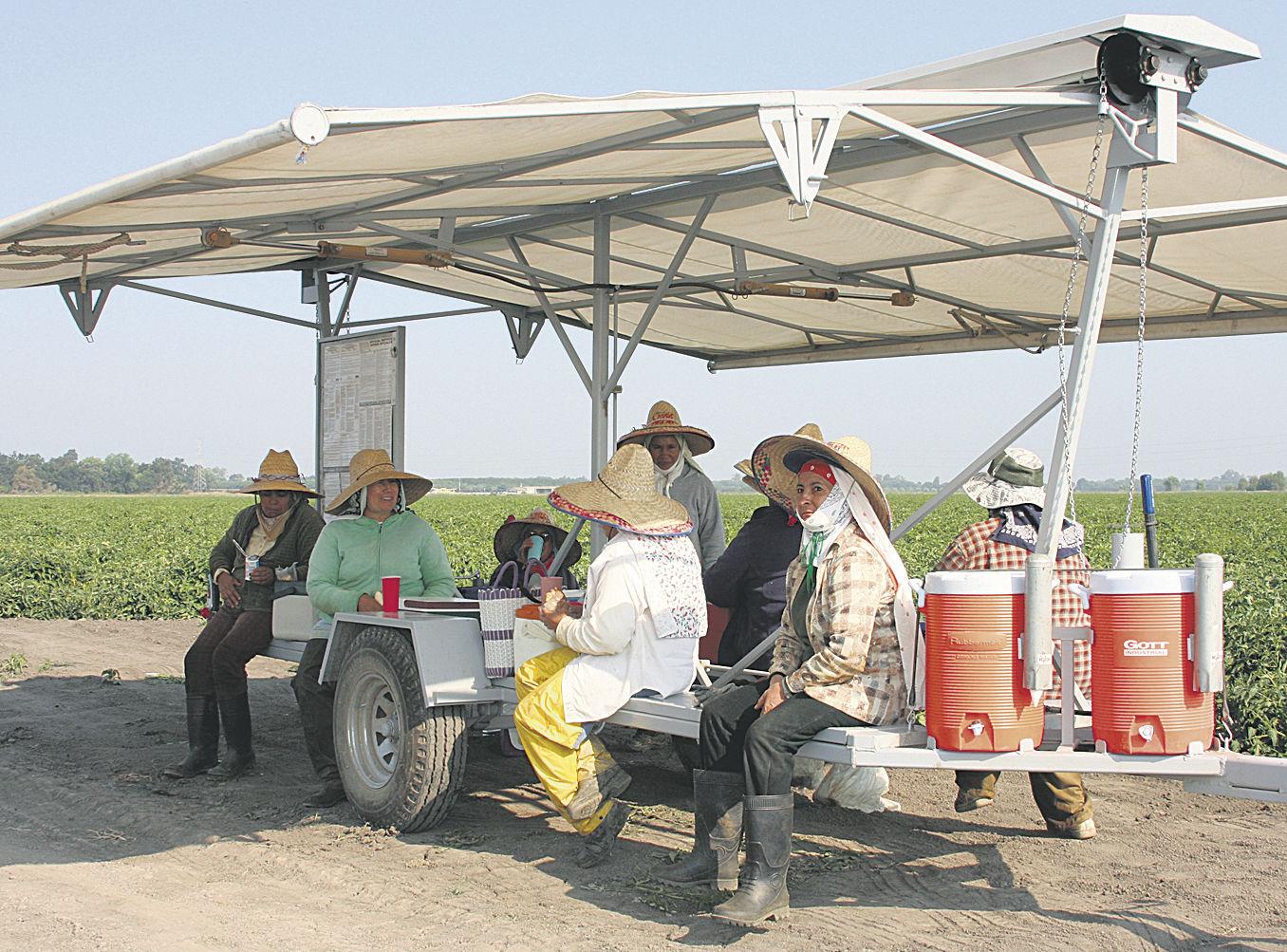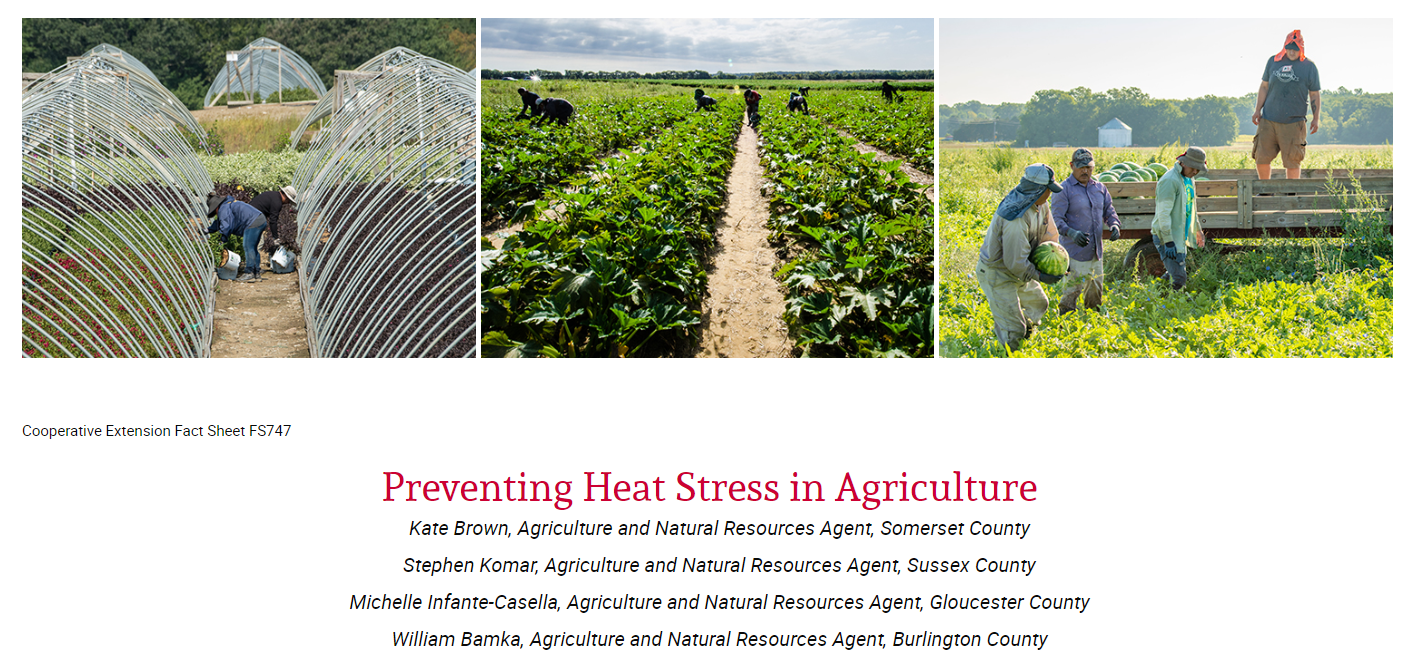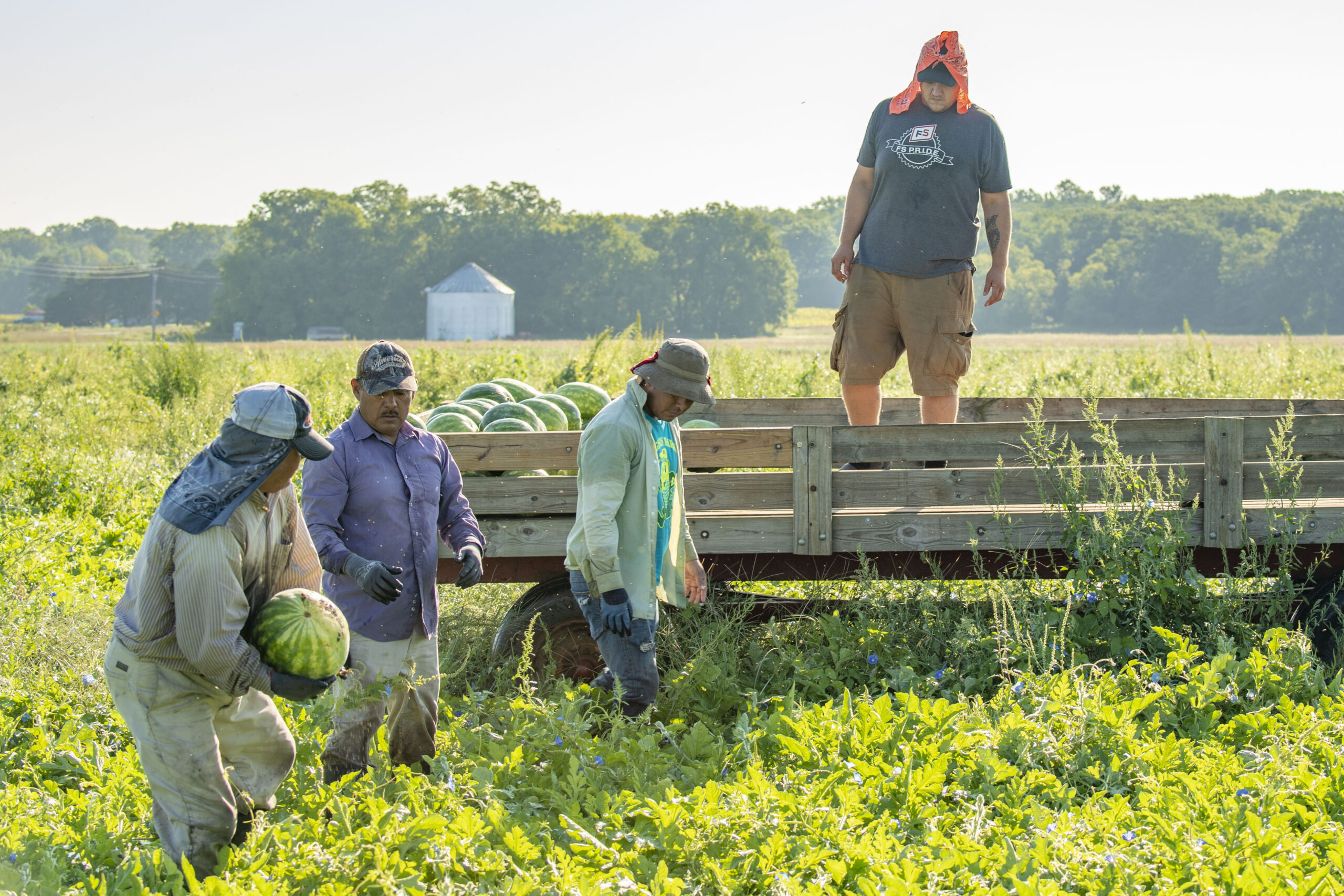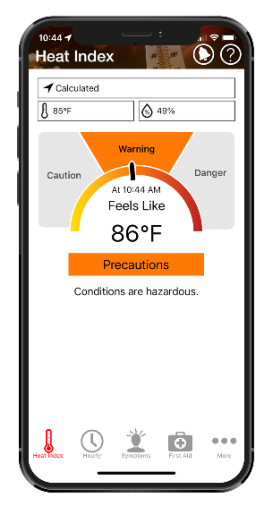New workers are vulnerable to heat-related illness because they have not acclimatized to working in the heat. Acclimatization is a physiological process that occurs when exposure to heat takes place gradually over an extended period. Once acclimatization is achieved, working in the heat results in production of a more dilute sweat (lower salt content) and less of an increase in heart rate and body temperature, reducing the risk of heat-related illness.
One approach to achieving acclimatization is to limit occupational heat exposure to one-third of the workday during the first and second days, one-half of the workday during the third and fourth days, and two-thirds of the workday during the fifth and sixth days.

Photo credit: California Farm Bureau Federation
Additional Strategies For Worker Heat Acclimatization
- Schedule new workers for shorter time periods in the heat, separated with frequent break periods.
- Train new workers about heat exposure, symptoms of heat-related illness, and the importance of rest and hydrating with water even during non-work hours.
- Monitor new workers closely for any symptoms of heat-related illness.
- Use a system where new workers do not work alone.
- If new workers talk about or show any symptoms, allow them to stop working. Administer first aid. Never leave someone alone who is experiencing heat stress symptoms.
These increased precautions should last for 1–2 weeks. After that time, new workers should be acclimatized to the heat and can safely work a normal schedule. The acclimatization procedure should be repeated if a person misses workdays after days off due to illness, vacation, or other reasons for missing one week or more of job duties. For more information on acclimatization, check out this resource from NIOSH.




